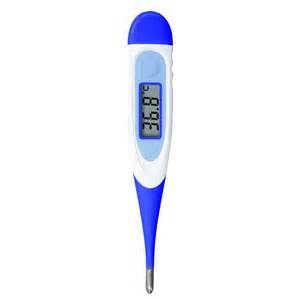
I recently read an article posted on MyDailyMoment.com that did a pretty darn good job of explaining how to determine if you have the flu (and should go see your doc) or if you just have a common cold (and should rest and recover on your own). Here it is:
Do I have the flu or is it just a common cold? This question is usually the first that comes to mind when you get that lousy-all-over-feeling that lets you know you've caught a winter season bug. Some of the symptoms of the flu (influenza) are very similar to those common to the common cold; however, there are some flu symptoms that are not. If you suspect you have the flu and not just a common cold, see your doctor within 48 hours if possible. He may be able to prescribe medications that will help lessen the severity of your symptoms. After 48 hours the available antiviral medications are much less effective. Here are 8 symptoms that are common to the flu. These tips may help you determine whether you have the flu and a proper course of action if you do.
- Fever of 100.4 F (38C) or higher -- Fever is rare if you only have a cold, but a fever higher than 100.4 F for 3-4 days is common in up to 80 percent of flu cases.
- Widespread muscle aches -- Muscle aches are not common with a cold, and if they do occur, are normally slight.
- Very tired or exhausted feeling -- The degree of tiredness is usually much more pronounced with the flu than with a common cold.
- Headaches are common with the flu but fairly uncommon with a cold.
- Chills are common with the flu but are uncommon with a cold.
- Sore throats are common with both the flu and a cold.
- Stuffy or runny nose -- These are common with both the flu and a cold but are more common with children who have the flu than with adults with the flu.
- Stomach problems such as nausea, vomiting and diarrhea are sometimes associated with the flu -- a more common symptom with children -- but uncommon with a cold.
If you have any of the symptoms commonly associated with the flu, you should see your doctor ASAP --remember , within 48 hours of the onset of flu symptoms, he or she may be able to treat you with antiviral medications that may reduce the severity of your symptoms and shorten their duration.
Here are a few other suggestions that may help get you through the misery of having the flu:
- Get enough sleep. Not only will sleep help your body recover more quickly from the flu, but also when you are asleep, you are not suffering.
- Take over-the-counter medications such as Tylenol or Advil or other brands of ibuprofen or acetaminophen.
- Keep your room warm (but not hot).
- Monitor your fever.
- Avoid contact with others until you are well.
- Do not continue working or strenuous daily activities until you are well.
Prevention is better. To prevent the flu: Ask your doctor if he recommends that you get a flu shot each year before the flu season begins. Certainly you should see you doctor immediately if you suspect you already have the flu.
 RSS Feed
RSS Feed